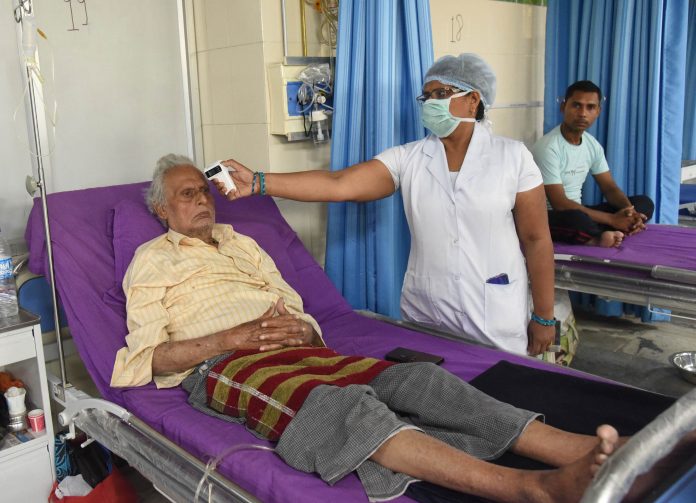A plea has been filed in the Supreme Court on Wednesday by a Delhi based advocate Amit Dwivedi seeking direction to the Centre and the state to nationalise complete healthcare sector and associate providers until the pandemic Covid-19 contained.
The petitioner stresses that the fight against Covid-19 requires a great deal of reliance on healthcare facilities and the country public health sector is not alone equipped to fight against it. Therefore, “all health care facilities, all institutes, all companies and all entities related to health care sector situated in the territory of the union of India to conduct tests, all subsequent tests, procedures and treatments in relation to COVID-19 disease free of cost for all citizens of India till the pandemic COVID-19 is contained.”
“For years expenditure on public health facilities has been low and as a result of which India’s public health infrastructure is substandard and inadequate, more peculiar in the time of pandemics like COVID-19, in comparison to the world and unfortunately we could not see much development in this front,” Dwivedi argued.
Citing that nationalisation is being done globally. Dwivedi asserts that like Spain, which has nationalised its healthcare after pandemic Covid-19 hits the country, our country needs to follow the same. “Nationalisation of the health care has been happening in many countries of the world to contain this pandemic including but not limited to Spain. Once nationalisation of the health care facilities and related institutions happen, then the struggle against COVID-19 would become effective,” reads the plea.
Before the Coronavirus pandemic, almost 18 countries in the world including, Australia, Canada, Finland, France, Germany, Hungary, Iceland, Ireland, Israel, the Netherlands, New Zealand, Norway, Portugal, the Slovak Republic, Slovenia, Sweden, Switzerland, and the United Kingdom have universal healthcare coverage.Pointing that Article 21 of the Constitution guarantees the Right to life and Article 47 stipulates improvement of public health among primary duties of the state, Dwivedi adds, “If allowed, it would benefit the citizens of India and will relieve them from insurmountable hardships.” The plea also mentioned about Article 38 which requires the state to eliminate inequality in status, facilities and opportunities and Article 25 (2)of the Universal Declaration of Human Rights (UDHR) to state that everyone “has the right to a standard of living adequate for the health and well-being of himself and of his family, including food, clothing, housing, and medical care and necessary social services.”
Citing from the researched paper titled ‘The private health care sector is burgeoning but at the cost of public health,’ the petitioner stated, “Most of the population is compelled to spend out of their pocket for basic health services and as a result of which 80% of Outside Patient Department (OPD) consultations were in the private sector and 60% of Inside Patient Department (IPD) treatments happened in the private sector.”
“In fact, in a country like India where a majority of the population is not resourceful considering the fact that in the ranking list based on purchasing power parity, hereinafter, “PPP”, of per capita GDP ready by International Monetary Fund (IMF) in 2017 India ranked 126 out of all of the nations with a per capita revenue of 7,170$ a lot behind different growing nations like Brazil and South Africa having per capita GDP as 15,500$ and 13,400$ respectively then the dearth of public healthcare services within the time of pandemic like the current one and its impacts can certainly be disastrous,” reads the petition
Lead picture : UNI


